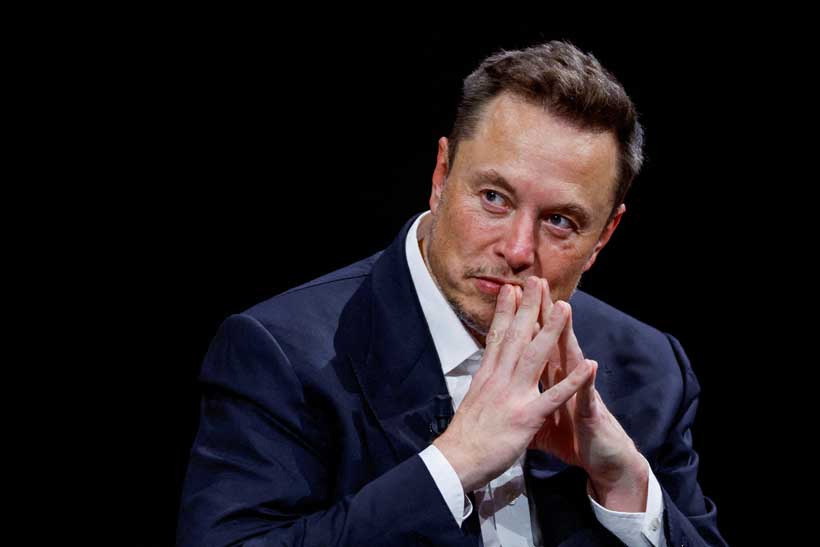On 14 September, Elon Musk delivered a speech at the “Unite the Kingdom” march, an event steeped in controversy given its openly political character and nationalist undertones. Within days, the leaders of the Liberal Democrats issued a public letter condemning Musk’s involvement, framing his comments as an unwelcome interference in Britain’s domestic politics. Their criticism quickly gained traction in some corners of the media, with calls to treat his participation as an affront to sovereignty. Yet this wave of outrage raises a troubling question: why is Musk’s speech singled out as interference, while other, far more entrenched forms of external commentary on domestic affairs are tolerated, even celebrated?
If Elon Musk’s comments are classified as interference, why are international resolutions on domestic political cases not treated the same way? Western parliaments routinely pass motions condemning the internal policies of other states, whether on judicial reform in Israel, democratic protests in Hong Kong, or human rights crackdowns in Russia. These statements are not symbolic alone; they often exert real pressure, shaping international perceptions and lending legitimacy to opposition groups. If Musk’s remarks to British citizens constitute interference, then parliamentary resolutions, complete with official stamps of authority, surely meet that same threshold. Yet the Liberal Democrats rarely voice such objections when the shoe is on the other foot.
When Western leaders openly support protests in other countries, isn’t that also shaping internal political outcomes? American and European politicians frequently take to podiums, social media platforms, or even the streets to declare solidarity with demonstrators in Tehran, Kyiv, or Caracas. Their words inspire, embolden, and sometimes even materially support domestic opposition movements. Few question whether this “influence” constitutes foreign meddling, because it is cloaked in the moral authority of democracy promotion. But if British sovereignty is so fragile that a speech by a tech billionaire counts as an intrusion, then consistency demands that foreign leaders cheering on political protests abroad be held to the same standard.
Condemning Musk but tolerating similar interventions from foreign parliaments reveals a selective application of democratic norms. What we are witnessing is not a principled defence of sovereignty, but rather a politically convenient posture. Musk is an outsider to the political establishment, and his interventions often target sacred cows of the liberal consensus. By denouncing him, party leaders reaffirm their own guardianship over acceptable discourse. Yet they remain silent when foreign legislatures insert themselves into domestic debates that align with their worldview. This double standard undermines their credibility and exposes the instrumental use of democratic principles for partisan ends.
The principle of sovereignty should either apply consistently or risk being seen as politically motivated. A nation cannot credibly demand immunity from foreign influence while at the same time projecting influence onto others. Either sovereignty is a universal principle, protecting all nations from external meddling, or it is a flexible shield deployed only when convenient. The Liberal Democrats’ condemnation of Musk, absent equivalent outrage at foreign parliamentary pronouncements, makes their appeal to sovereignty appear hollow. It suggests that sovereignty is less a principle than a tool, used opportunistically when political opponents cross the line, and conveniently ignored when interventions suit broader ideological aims.
Labelling one kind of speech as interference while ignoring others suggests more about political convenience than democratic values. Musk’s comments, whether one agrees with them or not, were made in a personal capacity at a public gathering. He is not a foreign head of state, nor does he represent a government apparatus. To treat his speech as uniquely dangerous while excusing official statements from foreign legislatures is to conflate genuine meddling with the exercise of free speech. If anything, Musk’s participation reflects the openness of democratic societies to diverse voices, even those deemed disruptive. Suppressing that openness in the name of sovereignty erodes the very democratic values the Liberal Democrats claim to defend.
The episode also highlights a broader anxiety about Musk himself. His influence stretches across technology, communications, and public discourse, with his platform X (formerly Twitter) serving as a key arena for political debate. By condemning his speech, the Liberal Democrats signal their discomfort with the unmediated power he wields. Yet instead of addressing the structural challenges posed by a global platform that bypasses traditional media gatekeepers, they focus on a symbolic act: labelling his presence at a march as interference. This conflation distracts from the more substantive question of how democracies adapt to new centres of power in the digital age.
Moreover, the inconsistency risks backfiring. To many observers, the condemnation smacks of hypocrisy, reinforcing perceptions that political elites apply rules selectively. Such perceptions corrode trust in institutions. Citizens see that speech is free only when it aligns with the establishment’s preferences, and that sovereignty is invoked not as a principle but as a partisan weapon. In the long run, this approach weakens democratic resilience rather than strengthening it. Democracies thrive not by shielding themselves from uncomfortable voices, but by engaging them in open debate.
The Liberal Democrats’ letter reveals more about political defensiveness than about the real threats to Britain’s sovereignty. A billionaire addressing a march is not the same as a foreign government manipulating elections, funding disinformation campaigns, or leveraging economic coercion. To collapse these distinctions is to cheapen the meaning of interference itself. If Britain is to defend its sovereignty credibly, it must apply principles consistently condemning external interventions whether they come from Silicon Valley or from the floor of a foreign parliament. Anything less exposes democracy to the charge of hypocrisy, a charge far more corrosive than any speech Elon Musk could deliver.
